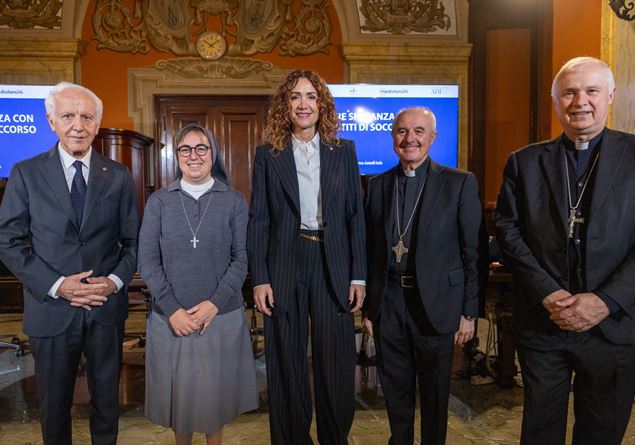Over 8.5 million euros disbursed and 910 families helped in 16 years. Mediolanum’s commitment to those at risk of over-indebtedness continues. With its “Rescue loan” activity, launched across the entire national territory, it managed to reach those in difficulty. By ensuring that those who had been left without work, or had had to bear unexpected expenses for the home, for health, for separation or family bereavement, or even those who were victims of some addiction were able to recover their dignity in life. In fact, with virtuous paths and a symbolic interest rate of 1.5 percent, over 90 percent of the subjects targeted by the project have managed to repay the amount received.
It was discussed in Rome during the conference, now in its third edition, “Restoring hope with relief loans”. The Catholic University of the Sacred Heart, with its Faculty of Economics, and the Italian Banking Association (Abi) also took part in the initiative, promoted by Banca Mediolanum. With the patronage of Jubilee 2025 the initiative wanted to underline the hope that is rekindled thanks to this support. The amount paid, on average 11 thousand euros, is accompanied by gestures of closeness and a path that helps families get back on their feet. In the last year, mainly women, low-income families with children, precarious workers and pensioners have been helped.
«In a stagnating economic context, with incomes tending to decline, debts can become a snare for the most vulnerable families with implications not only from an economic point of view but also on a social level. That is, they can become a disruptive social factor”, underlined the rector of the Catholic University Elena Beccalli. The focus is, in particular, on new forms of credit, on online scams, on the ease with which, especially after the pandemic, people get involved in those “buy now pay later” activities, i.e. buy now and pay later, which risk plunging already economically fragile people into usury. A practice that Leo. The creation of the relief loan, the dean of Economics said for her part, Antonella Occhino, it is a laudable initiative because «entrusting money to people in difficulty who would not otherwise have access to it not only prevents usury, not only remedies the need, but restores hope in situations that often border on personal and family dramaand connects the financial economy with the real one, which precedes and justifies it. It’s not charity, it’s a gift. It means recognizing the economy as a truly inclusive system, capable of responding to a problem beyond any scheme and stigma, and – among other things – overcoming the ethically fallacious distinction between those who deserve and those who do not deserve to be helped.”
And indeed, he added Giovanni Pirovano, President of Banca Mediolanum, granting these loans «for us means giving these people, who too often remain excluded, a second chance and we can do this thanks to the great work of the anti-usury foundations present in the area which intercept and report to us the most risky situations». And so we take on “part of the economic inequalities in the community in which we operate” to “bring these families back into a process of responsible indebtedness that restores civic and social dignity to the person”.
In agreement with the anti-usury associations that identify and accompany families and individuals, as explained by Sister Alessandra Smerilli, Secretary of the Dicastery for the Service of Integral Human Development, Luciano Gualzetti, President of the “San Giovanni Paolo II” National Anti-Usury Council, Giustino Trincia, Director of Caritas Rome and President of the Salus Populi Romani Anti-Usury Foundation, Antonella Sciarrone Alibrandi, Judge of the Constitutional Court, as well as Monsignor Di Tolve and Monsignor Claudio Giuliodori, Banca Mediolanum provides capital that is not simply economic support. In fact, in this way, the Bank makes its “social responsibility” tangible, as underlined by Sara Doris, Vice President of Banca Mediolanum and President of the Mediolanum Foundation. “Attention to people continues to guide all our choices”, he added, to encourage “paths to redemption and rebirth”.


